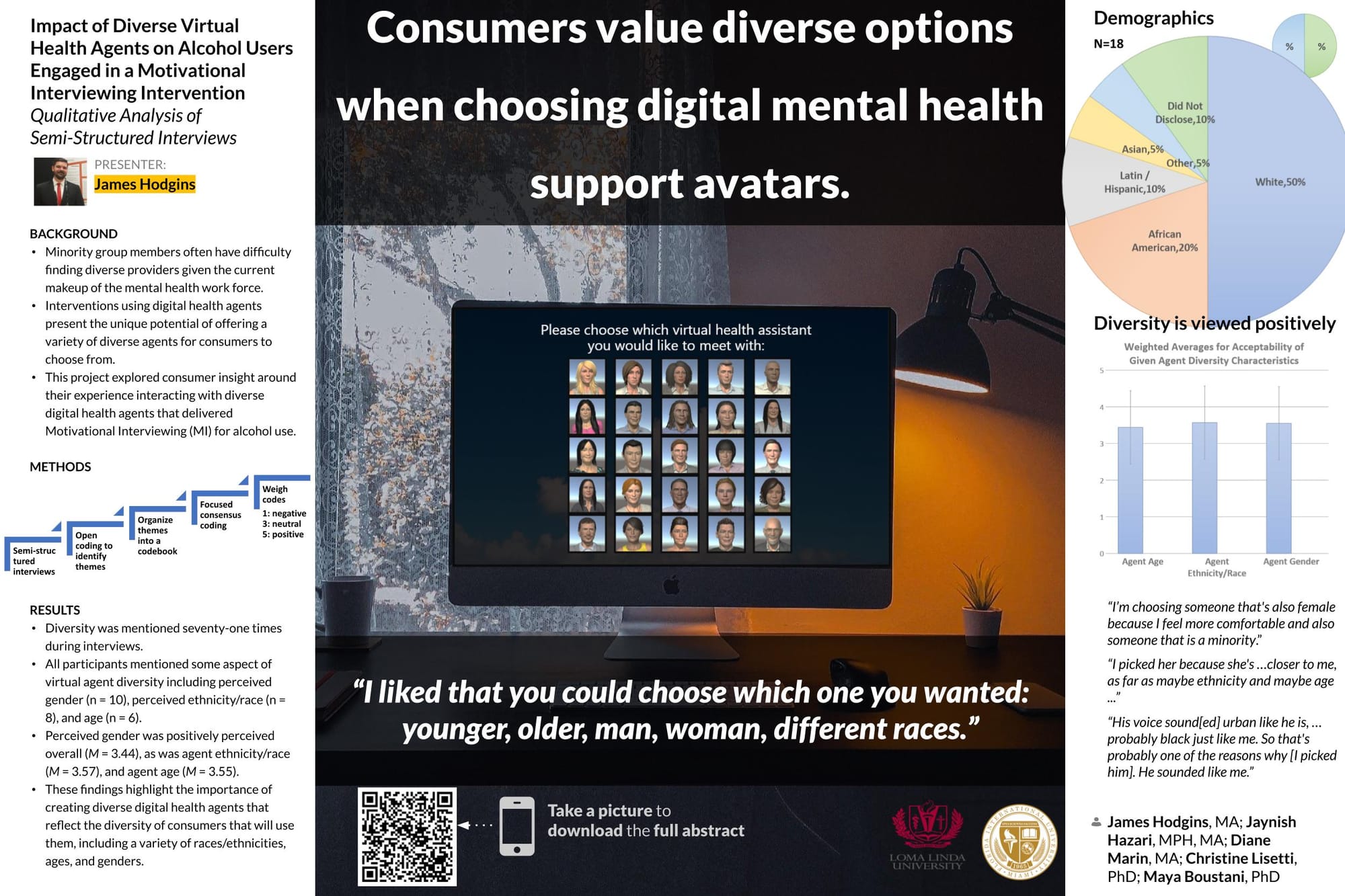Impact of Diverse Virtual Health Agents on Alcohol Users Engaged in a Motivational Interviewing Intervention: Qualitative Analysis of Semi-Structured Interviews

Introduction. Digital health agents have potential to provide stand-alone or adjunctive behavioral health treatments (Provoost et. al, 2017, de Cock et. al. 2020), and thus may reduce barriers to treatment such as those we experienced during the COVID-19 pandemic (Torous et. al., 2020). One unique potential of digital health agents is the ability to provide ethnically and racially diverse agents for consumers to choose from. This may be especially beneficial for minority groups (de Cock et. al. 2020) who may have difficulty finding diverse providers, given the current racial and ethnic makeup of the mental health workforce. This project explores consumer insight around their experience interacting with diverse digital health agents that deliver Motivational Interviewing (MI) for alcohol use. Methods. Individual semi-structured interviews were conducted with eighteen alcohol users (Male = 50%). Participants were White (50%), African American (20%), Latin/Hispanic (10%), Asian (5%), and Other (5%). We started with an open coding procedure to identify codes which were then organized into a codebook based on common themes. The codebook was used to code all transcripts. Agent and intervention acceptability codes were weighed on a scale from 1-5 (1 = negative, 3 = neutral, 5 = positive). Results. Qualitative data analysis revealed that virtual agent diversity characteristics were perceived positively among alcohol users. For example, “I like that you can choose which you know which one you wanted younger, older, man, woman, different races.” All participants mentioned some aspect of virtual agent diversity including perceived gender (n = 10), perceived ethnicity/race (n = 8), and age (n = 6). As one participant explained, “I'm choosing someone that's also female because I feel more comfortable and also someone that is a minority.” Further data analysis using weighted averages of codes revealed perceived gender was positively perceived overall (M = 3.3), as was agent ethnicity/race (M = 3.9), and agent age (M = 3.9). Several participants stated they chose a virtual health agent that was like them in at least one diversity characteristic. One interviewee stated “I guess maybe I picked her because she's … like closer to me, as far as maybe ethnicity and maybe age ...”Discussion. These findings highlight the importance of creating diverse digital health agents that reflect the diversity of consumers that will use them, including a variety of races/ethnicities, ages, and genders.



